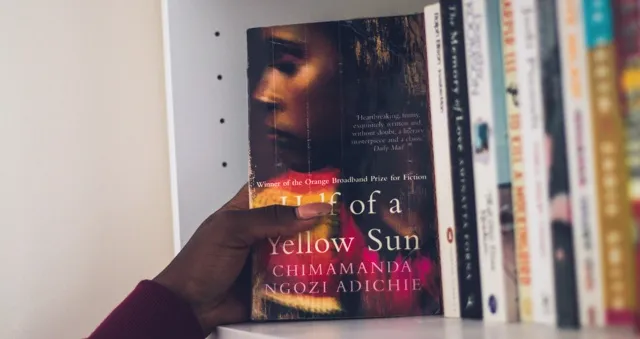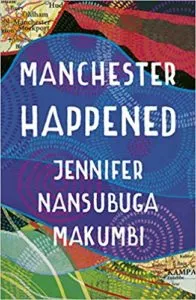
Recognizing Publishers and More for Third Annual #ReadAfricaWeek
This content contains affiliate links. When you buy through these links, we may earn an affiliate commission.
This December, readers, publishers, and educators are set to celebrate the third annual #ReadAfricaWeek. The event comes during the first week of December every year.
#ReadAfricaWeek is the brainchild of U.S.- and South Africa–based Catalyst Press. The press’s Marketing Manager, Ashawnta Jackson, says that the best part of the week has been the participation of fellow publishers.

 While it’s true that African writers are often shut out of literature’s big prestige prizes, more and more have been award-winners and bestsellers. The Nobel has gone to African writers only five times (Wole Soyinka, Naguib Mahfouz, Nadine Gordimer, and J.M. Coetzee), and the International Booker has gone to an African writer only once (Chinua Achebe). Yet, across genres, there have been a growing number of big books by African writers. This year, there were a number of hotly anticipated books by African writers. These include a new collection by Kenyan Nobel hopeful Ngũgĩ wa Thiong’o; another by popular Ugandan author Jennifer Nansubuga Makumbi’s Manchester Happened; and acclaimed Nigerian novelist Helon Habila’s fourth novel, Travellers.
Jackson said that she believes the relationship between African literature and world readers is changing. Readers, she says, now have “a stronger understanding that where ever you live, there are going to be stories that just resonate with a universal human experience.”
While it’s true that African writers are often shut out of literature’s big prestige prizes, more and more have been award-winners and bestsellers. The Nobel has gone to African writers only five times (Wole Soyinka, Naguib Mahfouz, Nadine Gordimer, and J.M. Coetzee), and the International Booker has gone to an African writer only once (Chinua Achebe). Yet, across genres, there have been a growing number of big books by African writers. This year, there were a number of hotly anticipated books by African writers. These include a new collection by Kenyan Nobel hopeful Ngũgĩ wa Thiong’o; another by popular Ugandan author Jennifer Nansubuga Makumbi’s Manchester Happened; and acclaimed Nigerian novelist Helon Habila’s fourth novel, Travellers.
Jackson said that she believes the relationship between African literature and world readers is changing. Readers, she says, now have “a stronger understanding that where ever you live, there are going to be stories that just resonate with a universal human experience.”

It all started…
“It started as a way to support each others’ work, so they were our earliest supporters,” Jackson said over email. “We’ve seen so many independent and academic publishers promoting their books, and that’s been fantastic. I think, particularly for small publishers like us, a week of everyone liking, sharing, and reposting is invaluable. We’re always trying to have our voices heard in a really crowded field, and this is a great way to celebrate each other. (Not that we’d mind if one of the big guys joined in! The more the merrier!)” While it’s true that African writers are often shut out of literature’s big prestige prizes, more and more have been award-winners and bestsellers. The Nobel has gone to African writers only five times (Wole Soyinka, Naguib Mahfouz, Nadine Gordimer, and J.M. Coetzee), and the International Booker has gone to an African writer only once (Chinua Achebe). Yet, across genres, there have been a growing number of big books by African writers. This year, there were a number of hotly anticipated books by African writers. These include a new collection by Kenyan Nobel hopeful Ngũgĩ wa Thiong’o; another by popular Ugandan author Jennifer Nansubuga Makumbi’s Manchester Happened; and acclaimed Nigerian novelist Helon Habila’s fourth novel, Travellers.
Jackson said that she believes the relationship between African literature and world readers is changing. Readers, she says, now have “a stronger understanding that where ever you live, there are going to be stories that just resonate with a universal human experience.”
While it’s true that African writers are often shut out of literature’s big prestige prizes, more and more have been award-winners and bestsellers. The Nobel has gone to African writers only five times (Wole Soyinka, Naguib Mahfouz, Nadine Gordimer, and J.M. Coetzee), and the International Booker has gone to an African writer only once (Chinua Achebe). Yet, across genres, there have been a growing number of big books by African writers. This year, there were a number of hotly anticipated books by African writers. These include a new collection by Kenyan Nobel hopeful Ngũgĩ wa Thiong’o; another by popular Ugandan author Jennifer Nansubuga Makumbi’s Manchester Happened; and acclaimed Nigerian novelist Helon Habila’s fourth novel, Travellers.
Jackson said that she believes the relationship between African literature and world readers is changing. Readers, she says, now have “a stronger understanding that where ever you live, there are going to be stories that just resonate with a universal human experience.”











